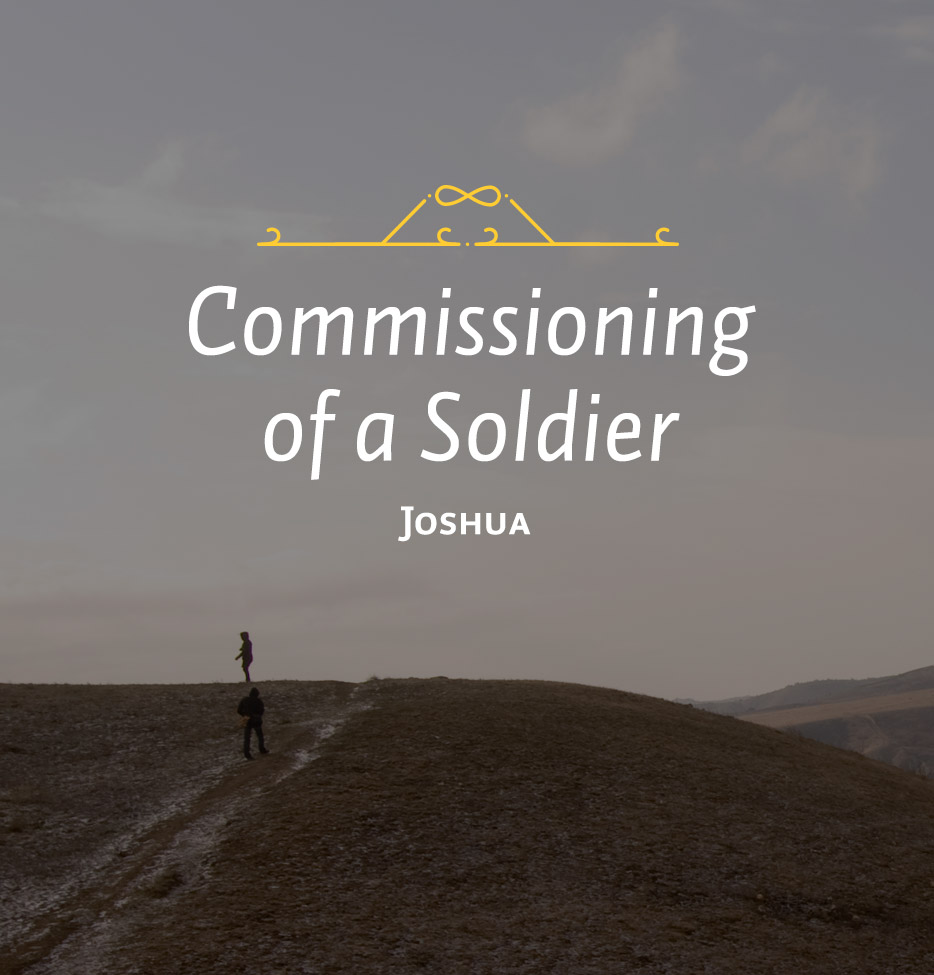Now, it’s worth reflecting on the specific things that Joshua was told to do so far as this law is concerned. There are four of them. First of all, he was to know God’s Word. Now, it’s true that the word “know” is not used specifically. The other things I’m going to mention are said specifically. But everything else that’s said presupposes the fact that he had to know it. This book that Moses had written at the direction of God was not to be some religious relic that was laid up in a holy place, revered, but unknown. Rather, this book was something that Joshua was to take out of the Ark of the Covenant and study, or to have copied by the scribes and then, as he had it copied, to take that book and to hold it in his hands, studying what those words actually were on that page, and getting to know those words personally.
Of course, in those days before Gutenberg and before the scribes had had much of an opportunity to make multiple copies of the law, not everybody had a Bible; there probably were few copies, if there were any at this early period. And yet, that did not mean that this book of God was to be inaccessible to the people. Joshua was to know it and make it known. And it was recorded even in the book itself in the portions written by Moses, Deuteronomy particularly, that when they came into the land, what they were to do is to make sure that the words of that law–all the words of the law of God which had been given–should be read audibly before the people regularly, or at the very least, once every seven years. And Joshua carried that out.
You see, it was a book to be known, a book to be understood. And Joshua was told to do that and undoubtedly was given the responsibility for it. You know, when I read this, I can’t doubt that this is something that Joshua probably had already learned. Joshua, after all, was Moses’ aide. He was what we would call his “right-hand man,” his lieutenant. If Moses spent a great deal of time, as I think he must have, writing the law, and if Joshua was his right-hand man or lieutenant, Joshua must have been there during much of the time that the composition was going on. And he must have seen the extraordinary care that Moses, his leader, was giving to the writing of this book. He must have been curious about it. He must have asked what it was that Moses was writing. And I can’t doubt for a moment that Moses, the good teacher that he was, instructed Joshua in the things that were recorded in the book. So when God comes, as He does now, in what is the first chapter of our book of Joshua and says to this one who has now succeeded Moses, “You must know this book,” it must have struck an echo in Joshua’s heart. And Joshua must have said, “Yes, I know that. And I have been trying to learn this book. And now, by your grace, I want to learn it more.” That’s the first thing he had to do.
The second thing is that he had to talk about the Bible. Here’s what God says, in verse 8: “Do not let this book of the law depart from your mouth.” It wasn’t just that he was to have it in his head. He was to have it on his tongue as well. Oh, I’m afraid this goes contrary to a lot of what passes for Christianity in our time. We have the book in its entirety, not just the Pentateuch, but the whole of the Old Testament and the New Testament as well. And yet, oh, how shy we are about speaking of these things, these words of the law, in our common conversation. If Joshua wasn’t to let these words of the law depart from his mouth, it meant that he was to speak about them with his family, and his friends, and the soldiers, and all the others in the camp.
And yet, how we hold back. Of course, it’s because of the world. The world considers itself very tolerant at this point when it says, “Oh, you Christians, just as everybody else, can go practice your religion as long as you do it quietly in your churches and don’t talk about it very much.” But when you try talking about these things when you’re with your non-Christian friends at dinner or at work, then you get a different response: “Keep quiet about those things. That’s your business. I’m glad it’s your business. Do it where you like, but don’t bother me with it.” If you keep up too much, pretty soon you find yourself in many cases with a new set of friends. And yet, here was God speaking to Joshua saying, “Don’t forget to talk about these things. When you learn them, talk about them. And you’ll be blessed.”






